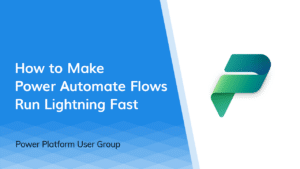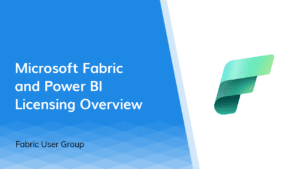The world is shifting almost entirely towards digital transactions. This digitization has only accelerated since the COVID pandemic began in 2020, leaving healthcare and consumer brands stranded in the middle—relearning how to engage and serve the audiences they thought they knew.
The rapid adoption of virtual care appointments and contactless grocery delivery are just two examples of new buying behaviors (two conveniences you and/or someone you know likely enjoys today).
Healthcare organizations are taking important cues from consumer brands that have long incorporated personalization, digital-first orientation, and customer-centricity. And consumer brands stand to benefit from the data privacy and protection prowess of healthcare entities.
These seemingly different industries are jointly using data to push the bounds of the customer experience. Let’s take a look at valuable lessons your healthcare organization can learn from consumer brands. Then you’ll understand how to improve data management processes and be more innovative with patient care.
Increase Engagement by Increasing Personalization
Patient engagement is an ongoing initiative for healthcare organizations, but most providers and practitioners are struggling to serve patients effectively.
To be more effective, you need to fully understand a patient’s current status and needs—including looking more closely at addressing social determinants of health (SDoH). You then need to reach out with a relevant care plan at the right time to improve health outcomes. All of these efforts are only possible with quality data.
Where some industries like healthcare struggle with prioritizing personalization, 70% of e-commerce, retail, and consumer brands say personalization is a top priority.
Take a look at your inbox and see how many emails from your favorite brands are waiting there, all of which prompt you to take an action or maybe even a series of actions. Year over year, B2C brands are seeing the biggest shifts in email personalization…
- Personalization based on past purchases: 60% in 2020 vs. 38% in 2019
- Personalization based on gender, race, ethnicity: 20% in 2020 vs. 11% in 2019
B2C marketers are going above and beyond customizing “Hi [name]” by tapping into behavioral attributes for email personalization. These attributes include:
- Past interactions with products and services
- Past interactions with emails
- Past purchases
Healthcare organizations should leverage data “the B2C way” to increase personalization and engagement with their own consumers.
What if you could instantly identify which patients are due for a checkup over the next month and send an email reminder? Or, if you have identified a group of patients seeking nutritional guidance, what if you could easily deliver a timely email with healthy eating tips?
A wealth of technology exists today to help healthcare brands manage and leverage complete data to drive more personalized patient engagement activities (i.e. healthcare data platforms with patient 360 capabilities). Whether or not your organization is ready to maximize all of this available technology depends on where you’re at on the spectrum of digital transformation.
Focus on Digital Transformation and Communication
There are 64 billion smartphone users in the world and adults in the U.S. spend an average of two hours and 55 minutes on their smartphones every day. Since so many people use their mobile phones for so much, implementing a mobile-first approach only makes sense. So, why are healthcare teams still missing the boat here when there is plenty of technology to support these efforts?
An increasing number of healthcare consumers are using technology to do things like order prescription medication refills, monitor their health, access their healthcare records, and measure their fitness.
While healthcare organizations have been slower to adopt digital transformation and modern communication, B2C brands have jumped on the opportunity to capitalize on customer interactions by really honing a digital-first approach.
For instance, consumer brands are exploring new avenues of collecting and analyzing customer data through social media channels like Facebook and even Facebook messenger to better understand customer behaviors and preferences—and meet them on the channels where they are most active and likely to engage.
The healthcare industry can adopt a similar digital-first approach by leveraging data in new ways, engaging with patients through their preferred communication methods (i.e. texts) over inconvenient methods (i.e. phone calls).
By communicating and giving patients access to their information via mobile apps, you empower your patients to take control of their data in a way that serves both the patient and the healthcare organization.
This is merely one example of an overlooked method of communication that is a game-changer for care delivery. Imagine what more of a focus on digital healthcare experiences will do for health outcomes.
Be More Customer-Centric with Patients
Healthcare consumers are just like any other modern consumer…they expect more from the brands they interact with. A customer-centric approach to patient care is the future of healthcare.
“The customer is always right” is engrained in our society as the way to ensure customer satisfaction. B2C brands take the customer experience seriously, choosing strategies that go above and beyond what is expected to delight and retain customers. So, what does that mean for patient expectations?
Consumers are commanding more control over their personal information. The list of data privacy legislation continues to expand, granting consumers more rights than ever before. Healthcare consumers expect the same level of control, especially when it comes to information that literally impacts their health and well-being.
Data transparency is also important. Patients who truly understand their own health and wellness can better communicate with their healthcare providers and play an active role in the decision-making process. When patients and providers work collaboratively, they are able to manage conditions more efficiently and even prevent chronic illnesses from worsening.
Being more customer-centric brings benefits to patients and providers, including improvements in patient engagement, health literacy, and outcomes.
Replicate B2C Success with a Healthcare Data Platform
Skypoint has been a customer data platform since day one. As we built our healthcare data platform, we applied lessons learned through consumerism to empower patients and providers with data—like a complete patient 360 view.
Patient 360 delivers a longitudinal, digital health record that collects and organizes important patient information in a chronological timeline. For example, providers might use these chronological insights to better understand how a patient’s condition is progressing and how they will take the best course of action with this data.
Whether you’re focused on improving patient outcomes or communicating more effectively with patients, Skypoint’s healthcare data platform puts patients at the center of the care journey and gives you a connected view across the clinical delivery spectrum. Replicate B2C success with Skypoint.











